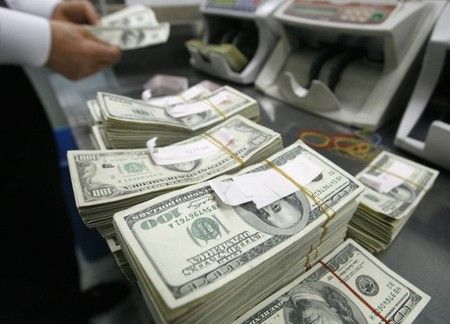Take Five: Rain check on those rate-cut bets?

Source: Market Screener
LONDON, Feb 9 (Reuters) - As China's troubled markets take time out for the Lunar New Year holiday, U.S. inflation numbers, key UK data, Russia's central bank meeting and an election in the world's third-largest democracy vie for the spotlight.
Here's your week ahead primer in world markets from Rae Wee in Singapore, Ira Iosebashvili in New York, and Amanda Cooper, Naomi Rovnick and Alexander Marrow in London.
For traders trying to bet on the timing of a first U.S. rate cut, life has not been made easy by an outperforming economy that could fuel a much-feared inflationary rebound.
January's stellar jobs number was just one sign that the U.S. economy is exceeding expectations. Its unexpected strength has fueled caution at the Federal Reserve, which has poured cold water on expectations of a March rate cut, lifting Treasury yields and the dollar.
So, attention falls on Tuesday's January inflation data. Any signs that price pressures are gaining momentum again could push rate cut bets further into the future.
Economists polled by Reuters expect a 0.2% rise in consumer prices on a monthly basis, after December's 0.3% increase.
2/ TOP DOLLAR
An exceptional U.S. economy means an exceptional dollar.
As 2023 ended, market-watchers were certain the U.S. currency was headed one way this year, south, with traders expecting as many as six Fed rate cuts in 2024.
Now, powered by blockbuster jobs growth, a flourishing services sector, cooling inflation, a bottoming-out in lending conditions and a roaring stock market, just four are fully priced in.
The dollar is at three-month highs, leaving competitor currencies, whose central banks are juggling slowing inflation and slowing growth, in the dust.
Not a single G10 currency is in positive territory against the dollar so far this year. Investors are still not holding a net bullish position in the dollar either, suggesting that, if the gap between the U.S. economy and the rest of the world keeps widening, the greenback could get a fresh tailwind.
3/ NOT SO HASTY
The Bank of England has held back from calling time on high rates. UK jobs data may see it fall further behind the more dovish U.S. Fed and European Central Bank.
Recent revisions to labour data from November showed that the UK's unemployment rate was running lower than previously thought. This, according to researchers at Pantheon Macroeconomics, means that UK jobless figures out Feb. 13 could undershoot the BoE's 4.3% estimate.
UK inflation figures on Feb. 14 could further complicate the monetary policy outlook. The BoE reckons inflation will return to its 2% target this year but has warned it could rise again in the third quarter.
Money markets have pushed out the timing of a first BoE rate cut to June from May. Pantheon sees UK rates at 4.5% by December from 5.25% now, but warns "the risks that initial cut comes later are rising."
4/ JOKOWI'S LEGACY
Indonesians head to the polls on Wednesday to elect the next leader of the world's third-largest democracy as Joko Widodo gets ready to step down as president after a decade in power.
Three candidates are in the race to succeed Jokowi, as the popular president is known, and polls suggest Defence Minister Prabowo Subianto is the candidate to beat.
Jokowi, not allowed to seek re-election after two terms, leaves behind a legacy of policies that have helped the trillion-dollar G20 economy thrive: from massive infrastructure projects to social welfare programmes.
Yet, it's not all smooth sailing. Rule changes allowing Jokowi's son to run with Prabowo has sowed cabinet discontent and speculation that the widely-respected finance minister could quit.
Indonesian markets, which have been resilient in the face of global rate hikes, are rattled. The rupiah has slumped almost 2% so far this year.
5/ TAKE A BREAK
It may be time to take a break for Russia's central bank at its Feb. 16 meeting. Policymakers have hiked rates by 850 bps to 16% since July to tackle inflation fanned by labour shortages, rouble weakness and high budget spending.
With President Vladimir Putin seeking re-election in March, just over two years after the invasion of Ukraine unleashed sanctions and severed Russia from the global financial fabric, the central bank faces the daunting task of zapping inflation without adding to borrowing costs for consumers and businesses.
It is also at odds with the Kremlin over the benefit of extending capital controls that have supported the rouble since October and opposes a push for an extension, but will likely be overruled.
Russian internet firm Yandex's Dutch holding company meanwhile just announced a $5.2-billion cash and shares deal to hand over Yandex's Russian business to domestic buyers.
(Graphics by Vineet Sachdev, Kripa Jayaram, Prinz Magtulis, Riddhima Talwani and Sumanta Sen; Compiled by Dhara Ranasinghe; Editing by Christian Schmollinger)
